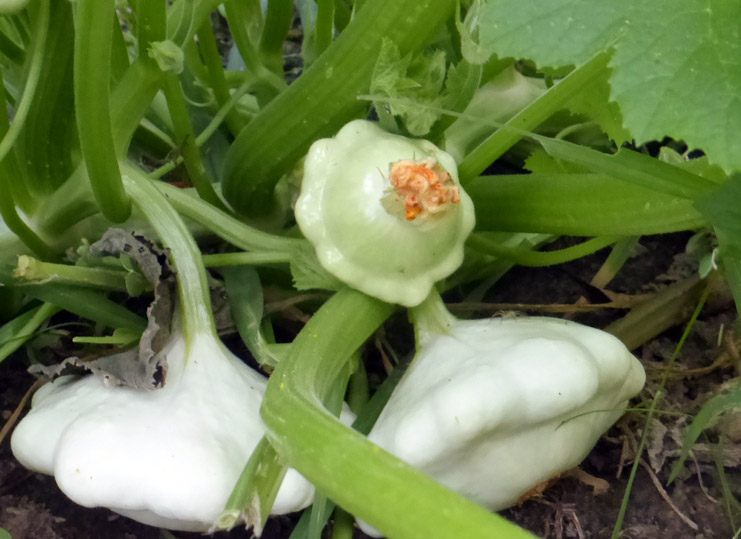
Squash vine borers are a type of clearwing moth. They’re a bit unusual because unlike other moths they’re active during the daytime. The adults resemble wasps, are about 1/2 inch long, and have an orange abdomen with black dots. The adults lay eggs near the base of squash plants. These eggs take only about a week to hatch and then they bore into the base of the squash plant and up inside the stem, preventing the plant from getting water or nutrients from the soil.
Signs of their presence include the plants wilting, holes at the base of the plant, and of course spotting adults flying around plants. If your plant has vine borers present you can slice into the stem and kill the insects. If you carefully bury the wounded part of the stem with moist soil and keep it well watered your plant may survive. While this is an option, the best methods for combating vine borers are preventative.
Plant late.
Depending on how long your growing season is you may be able to avoid vine borers by planting your summer squash at the end of July. Adult vine borers typically lay eggs in late June or early July so your late planting of squash won’t be mature until after vine borers are finished laying eggs.
Use crop rotation.
Once squash borers feed for 4-6 weeks they burrow into the soil where they spend the winter pupating. Rotating crops can help minimize the pressure on your plants.
Choose resistant plants.
Some cucurbits are much less likely choices for vine borers. Try planting squashes in the moschata and argyosperma family as well as watermelons and cucumbers. Check out the post below for how to use young winter squash like summer squash.
https://blog.southernexposure.com/2014/08/winter-squash-as-summer-squash/
Invest in row cover.
Covering your squash with row cover before late June can prevent vine borers from reaching your plants to lay eggs. This method needs to be used in combination with crop rotation as vine borers hatch from the soil.
Plant a trap crop.
You may be able to eliminate some of your garden’s vine borer population using a trap crop. Wait until your plants have vine borer larvae present and then pull and burn the plants. You may never get all of them this way but it can help reduce the problem next year provided you don’t have close neighbors also growing squash.
If you struggle with squash vine borers in your garden consider trying one of these preventative methods this summer. They can help you combat squash vine borers in without resorting to pesticides.
